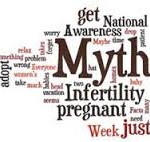 The 28 year old woman who is told ‘adoption is your only option’; the mother who wants to add another child to her family but feels guilty that others don’t have their first child yet; the 42-year-old woman who questions whether the diagnosis of infertility even applies to her, are all women who belong to this club of wanting to be mothers, but within this reluctant membership, there are subcultures, divided by age and diagnosis. In an already isolating experience, is it healthy to divide ourselves further?
The 28 year old woman who is told ‘adoption is your only option’; the mother who wants to add another child to her family but feels guilty that others don’t have their first child yet; the 42-year-old woman who questions whether the diagnosis of infertility even applies to her, are all women who belong to this club of wanting to be mothers, but within this reluctant membership, there are subcultures, divided by age and diagnosis. In an already isolating experience, is it healthy to divide ourselves further?
I’m not sure that any woman ever feels like she fits into this category called “infertility.” As an older woman trying to conceive I wonder, is it still considered infertility when you’re in your 40’s or is this something else? Maybe I was fertile in my 20’s and 30’s and I just started too late.
As if the experience of loss month after month isn’t challenging enough, there is this nagging feeling that I should’ve tried sooner. So many women my age are diagnosed with ‘unexplained infertility.’ But maybe it should be called ‘circumstantial infertility,’ where circumstances such as: not having met your life partner yet or not having enough money or both, prevented you from trying during your most fertile time.
I have not been surprised that, at almost 43 years old, it has been a challenge for me to conceive. It’s been heartbreaking, but not shocking to me. Since women have taken different paths to get to the same place, perhaps we could set aside our differences and acknowledge the fact that we’re all in the same predicament. The Dalai Lama said it best, “People take different roads seeking fulfillment and happiness. Just because they’re not on your road doesn’t mean they’ve gotten lost.”
National Infertility Awareness Week (NIAW) runs April 21-27th, 2013. According to RESOLVE, The National Infertility Association, NIAW is a movement that began in 1989 and according to their website, its “goal is to raise awareness about the disease of infertility and encourage the public to understand their reproductive health. “
